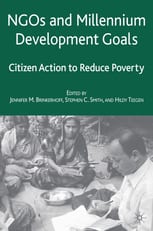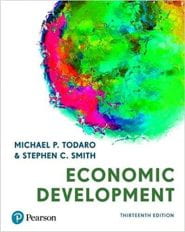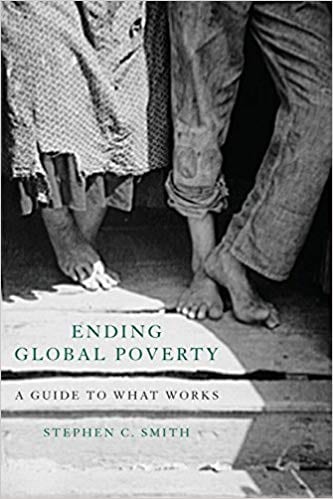Contact Information
Email: ssmith@gwu.edu
Address:
The George Washington University
Economics Department
Monroe Hall 340
2115 G Street NW
Washington, DC 20052
Recent Book
Economic Development (13th Edition)
with co-Author Michael P. Todaro
Publisher: Pearson, 2020
Available online at Amazon
Description
For courses on economic development.
A complete, balanced introduction to the theory, issues, and latest research.
Economic Development – the leading textbook in this field – provides students with a complete and balanced introduction to the requisite theory, driving policy issues, and latest research. Todaro and Smith take a policy-oriented approach, presenting economic theory in the context of critical policy debates and country-specific case studies so students see how theory relates to the problems and prospects of developing countries. The eleventh edition offers new sections on the global financial crisis and violent conflict.
Other Books
Ending Global Poverty: A Guide to What Works
Publisher: Palgrave Macmillan;Paperback, 2009
Hardcover: 2005
Available at Amazon
Description
Over 800 million people suffer from chronic hunger, and over ten million children die each year from preventable causes. These may seem like overwhelming statistics, but as Stephen Smith shows in this call to arms, global poverty is something that we can and should solve within our lifetimes. Ending Global Poverty explores the various traps that keep people mired in poverty, traps like poor nutrition, illiteracy, lack of access to health care, and others and presents eight keys to escaping these traps.

NGOs and the Millennium Development Goals: Citizen Action to Reduce Poverty
with co-editors Jennifer Brinkerhoff and Hildy Teegen
Publisher: Palgrave Macmillan, 2007
Available online at Amazon
Description
His book examines the role of NGOs in achieving the Millennium Development Goals (MDGs) and the fight to end global poverty more generally. The MDGs arguably represent the greatest opportunity and challenge for alleviating poverty and improving quality of life globally in our time. Their achievement will require maximizing all available resources and capitalizing on all available actors. NGOs have been highlighted by governments and global leaders as an important actor, but without better understanding of their potential, roles, and challenges to their effectiveness, we are not likely to fully tap their contribution and thus will be further challenged in achieving the MDGs. This book presents and examines general NGO roles and comparative advantages, as well as roles and opportunities specific to particular MDG sectors.



